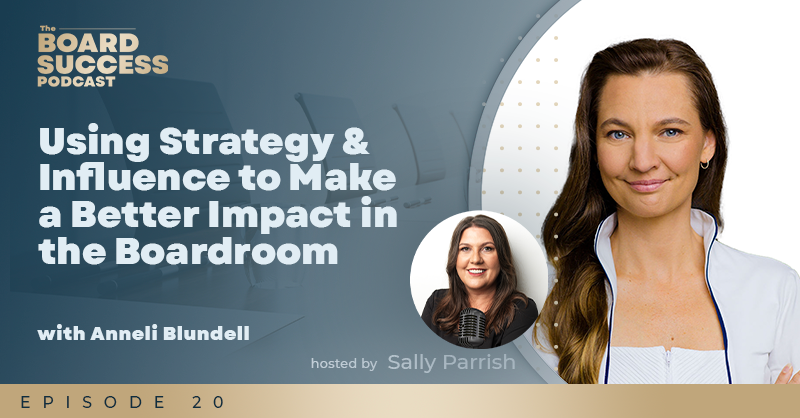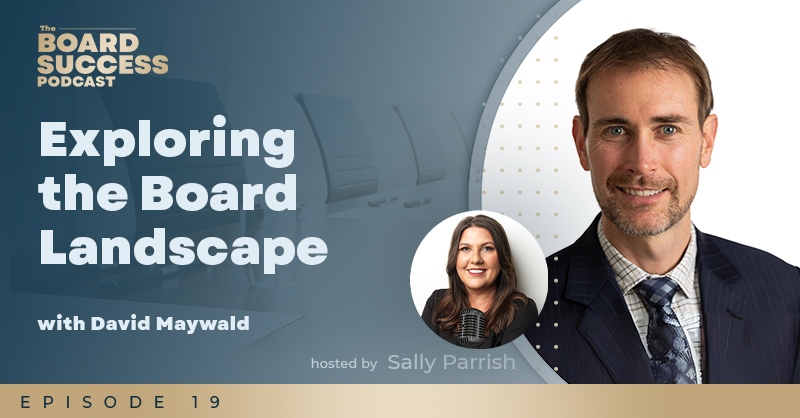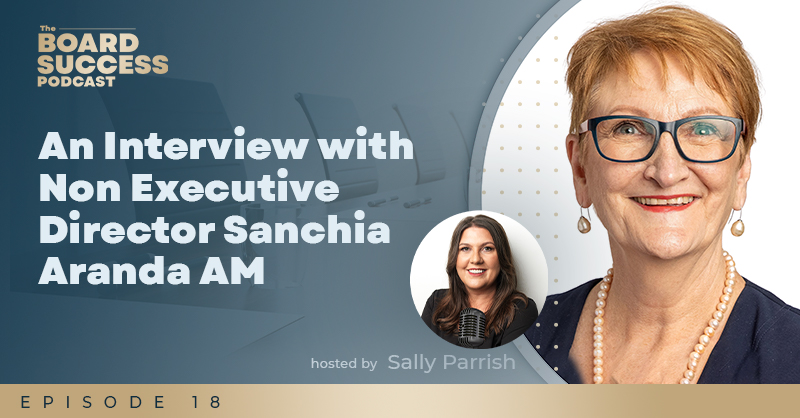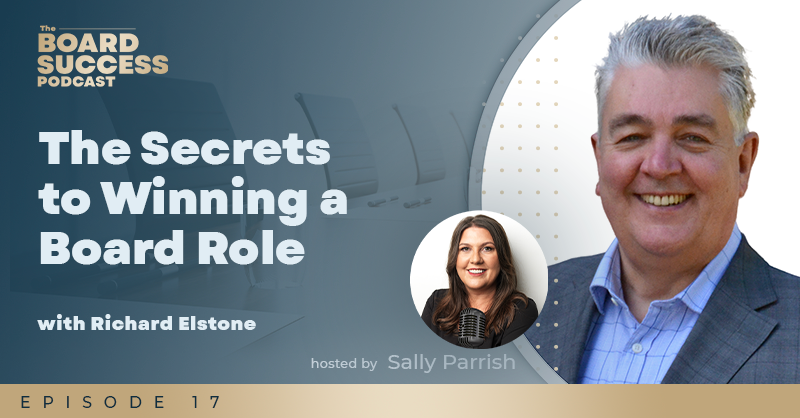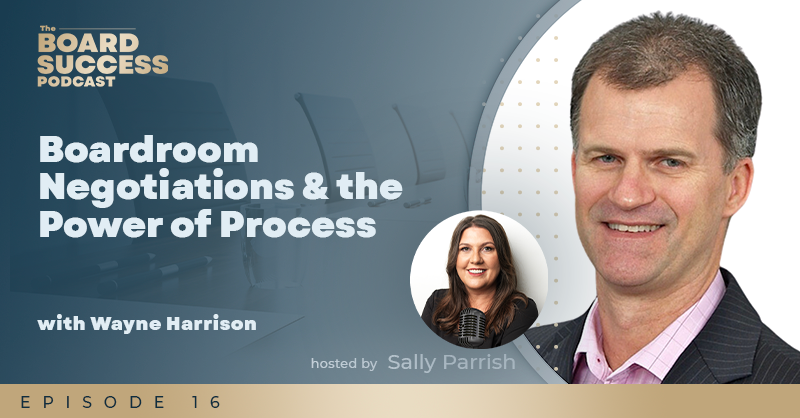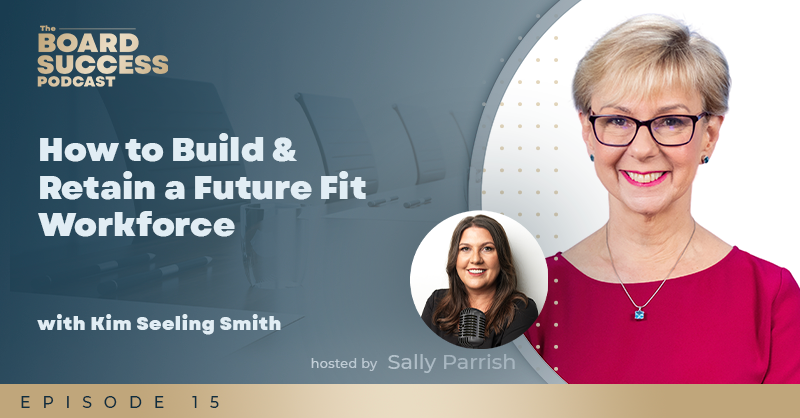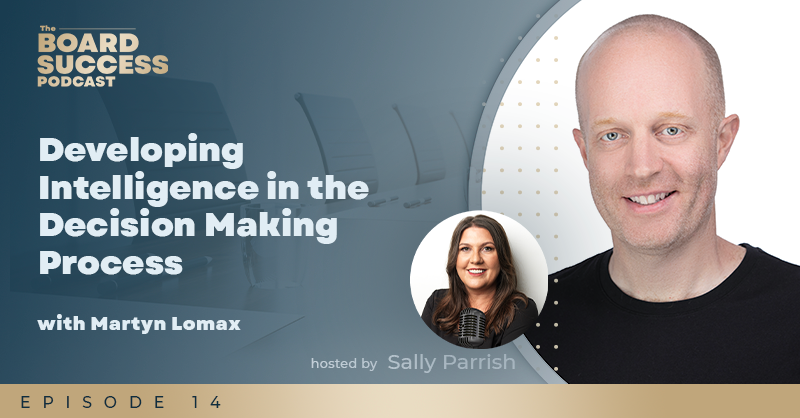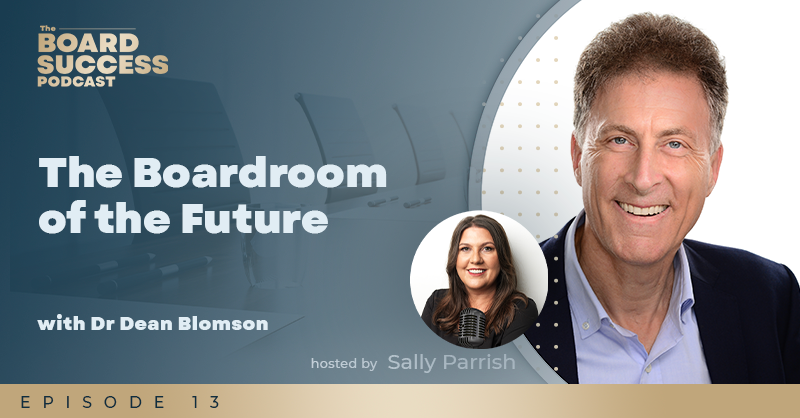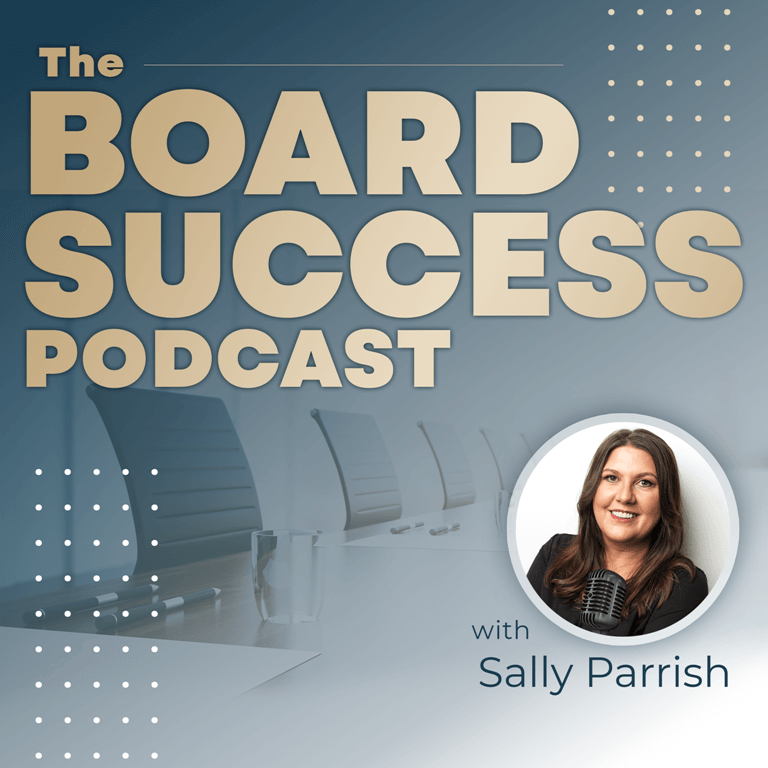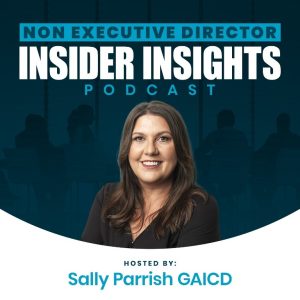Have I Got A Story For You!
Sally Parrish interviews Yamini Naidu
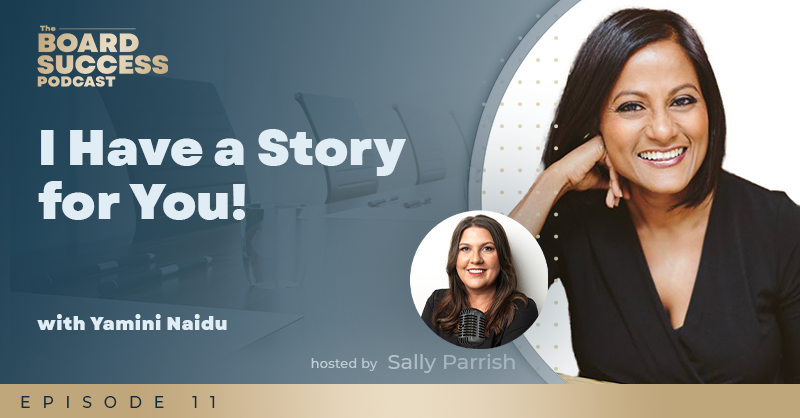
Story Telling master Yamini Naidu shares her top tips for using stories to influence and create impact using insights from her books 'Story Mastery' and 'X Factor Unleash Your Presenting Superpower'.
Bollywood dancing, economist-turned-business storyteller Yamini, specialises in working with leaders and professionals to craft narratives that foster meaningful connections. For those aspiring to board positions, Yamini advises steering clear of the mundane, generic, and uninspiring statements that saturate most resumes. Instead, she encourages focusing on specific experiences that serve as evidence of possessing that coveted X Factor. By confidently articulating your X Factor, you illuminate your purpose, value, and potential contribution as a prospective board member.
Her background in economics led her to ponder the puzzling phenomenon of data failing to captivate audiences, despite its inherent logic. Through her quest for answers, she uncovered a profound truth: the true essence of leadership resides in the mastery of storytelling. By sharing relatable experiences, infusing them with vitality, and showcasing one's unique qualities, individuals can distinguish themselves from the competition.
FURTHER INFORMATION
To request a copy of the resource “101 Storytelling Ideas” mentioned today, please email: [email protected]
Website: Yamini Naidu
Buy the Book: X factor Unleash Your Presenting Superpower
Buy the Book: Story Mastery, How Leaders Supercharge Results with Business Storytelling
LinkedIn: https://www.linkedin.com/in/yamininaidu/
@yamini.naidu
Click Here to View the Podcast Interview Transcript with Yamini Naidu
Joining us today is the fabulous Yamini Naidu. Welcome to the studio Yamini.
Yamini Naidu (01:13):
Thank you so much Sally. So excited to be here.
Sally Parrish (01:15):
Me too. I'm going to be spellbound. Whenever I sit and do any work with you. I just go off into some sort of trance. So if you need to give me a nudge in about 30 minutes from now, please do because I'd be off in some wonderful wonderland in my mind. So look, first of all, tell us a little bit about yourself and what you do.
Yamini Naidu (01:34):
Sure, I'll start with my name because people always struggle with pronouncing it. Yamini rhymes with harmony. So yeah, Yamini, harmony. Naidu is like ‘can do’ you know ‘Naidu can do’ that is our family motto. I'm really scared of doing both of those together, Sally, because one time I was giving an MC that tip I said you know harmony, and Naidu rhymes with can do and then introduced me. So ladies and gentlemen, welcome harmony can do.
Yamini Naidu (02:04):
If ever I need a performance name….
Sally Parrish (02:06):
You've got it, you're ready to go.
Yamini Naidu (02:09):
Yeah. Some of your listeners might know I'm an economist by training. Please forgive that early youthful misadventure. As an economist says, always wonder why data doesn't persuade people. Why is change so hard? Why can't we get people you know, embrace strategy? Because the data always just makes sense. Yeah. On a long haul flight, somebody gave me a book on storytelling, it was called Business Storytelling for Leaders by Stephen Denning.
And just seeing Storytelling Leaders just seemed to fry my brain. But I was so hungry for answers that on the flight, I read, I devoured the entire book. And when I got off, I rang a few leaders I knew and they all said two things. They said, we know good leaders tell stories. But we don't know how to. Yeah, I was determined to learn. At that time, the only two things available. So I'm talking maybe 2005, only two things available, was this book, and one article he'd written in Harvard Business Review. And that was it. Wow, the best way to learn something is to teach it. Absolutely. That brief premise, I co-founded Australia's first company that specialises just in storytelling. And within 30 days, National Australia Bank was our first client.
Sally Parrish (03:24):
What a great story. Like I've got to say, I don't mind an Excel spreadsheet, but there are some real, you know, defenders of the spreadsheet that will stand up and present columns and rows, like everybody else can follow along and understand it and I think, you know, even those of us who can follow a spreadsheet and understand the numbers, those types of presentations are just so dull, right? So this to you would have been almost like a magic show where you can take this spreadsheet that you've got and transform it into something really I was gonna say meaningful, but numbers can be meaningful, but kind of emotive. It's something that we can understand on an emotional level. What were some of the early results that you first noticed with this new craft of storytelling?
Yamini Naidu (04:15):
One of the surprising things was leaders particularly come into something like this thinking I've got no stories, because unfortunately the very moniker story we touched it or we've given it this cadence that it has to be something really large you know, scaling Mount Everest, sailing the world solo, because most people's first experiences with a motivational speaker, and they do share these larger than life stories. Yeah, but what our work and what the leaders immediately realise is what matters is everyday relatable experiences, dropping your kids off to school, you know, starting grade seven in a new high school or learning to play the flute or whatever it is, it's everyday relatable experiences.
And as soon as they start to see that they've got life enriching experiences, they actually have a life rich in story. The second thing that was surprising was how much it takes a level of courage to bring this into work. Because in the pub, in our personal lives, which is so good with all the storytelling, you know, we just moved from story to story to story. The minute you put people into work, we immediately disconnect with that part. It's not professional, no one's interested. But what's surprising is, that is exactly what you've spoken to Sally. It's that emotional core, it's what people relate with, they feel connected to you. They understand your message, all of those magical things happen.
Sally Parrish (05:32):
Yeah, absolutely. I think when I was first learning coaching, we learn this as metaphors, right? If you have a client who's particularly stuck with a thing, the brain that created the problem can't solve the problem, right. So if it's a logical head problem, then you need to move away from that and find a different story that's relatable that they can get for themselves. I think that a lot of the power of a story is that they don't necessarily have to have an ending, they just have to be a great journey that they can take people on. Would you agree with that?
Yamini Naidu (06:10):
Totally. And what you're saying is, obviously, we share the stories that help us make meaning of our lives. But actually the stories we tell ourselves form our identity. So when someone is stuck, that story is keeping them stuck. They think they're not going to be able to do X. Yeah, the biggest learnings and the biggest shifts happen in our life when we're able to recalibrate those stories. Yeah, we need to shift those stories.
Sally Parrish (06:35):
Yeah. And we've all got those stories, we're telling ourselves, right, and that whole self awareness piece, understanding what those stories are, and spotting those patterns are really important when it comes to professional development.
Yamini Naidu (06:47):
Sally, just to give our audience an example. Kate Burr is a humour coach. Very, very good. Check her out on LinkedIn. And you know, people always whenever she's trying to teach humour, people always go, but I'm not funny. So they stuck in that story that I'm not funny. Yeah. And Kate has learned to teach them to say, I'm learning to be funny. And I found that really powerful in everything in life. Don't just say I'm not, just go, I'm learning to be, so forgiveness, a lot of expansion, a lot of possibility. And that reframing helps you to reframe that narrative around what you can and can't do.
Sally Parrish (07:22):
I love that, because it's about black and white, right? There's all degrees of ability and capability. So I absolutely love that. We're going to focus on two key areas for listeners today. And I think the first one is around, you know, how do you use stories to set yourself apart? So going for board roles highly competitive, how you're going to stand out in this really competitive field. And the other way we're going to look at stories today is how can you use stories to have impact and influence in the boardroom? So we often hear, you know, finding your voice, that everyone's got a voice we all know how to speak, right? It's the actual words that we're choosing that we're going to look at today.
So let's start with a highly competitive field, right? There's thousands of potential Non Executive Directors out there looking for roles, how can we use your materials, your body of work to really sort of stand out from the competition and showcase the best version of who we are?
Yamini Naidu (08:27):
Sure, I never take a binary view. So everything you're doing, all the data you're providing, you know, all your achievements, your CV, all of that is good. But that makes you almost like everybody else, if we weren't going in that competitive pool, everyone is pretty matched, you know, in terms of skills, qualifications, experience. And when people are interviewing you, or when they meet you, what they're looking for is for you to be able to package some of your experiences and bring that alive. So a little bit like behavioural interviewing.
So if you're able to back up some of that with some examples, that shows that you have actually, you know, what you achieved and why that's different. And the best way to do that is through a story. So in behavioural interviewing, we always say, you know, can you tell us about a time when you showed when you demonstrated initiative? And people in talking really broad statements they go, I will always add initiative. And I think it's really important in every role as, you know, those are just bland, boring statements. And actually, three months ago, I was invited to lead a new team. And bang, you're telling them an example? The potted history of your life, but looking at your working life and looking for very specific incidents that could be shaped into a story.
Sally Parrish (09:40):
It's not just in the interview, we see this in resumes where people put statements, you know, like strategic thinking is critical to the success of the organisation. Really, is it Wow, but it's not, you know, this is evidence of my strategic thinking ability is just a statement.
I want to talk about your latest, but you've got another fabulous book as well. But let's talk about X Factor: Unleash Your Presenting Superpower. So, X Factor so what about people who aren't born with X Factor?
Yamini Naidu (10:17):
In the book I bust the myth that X factor is something you're born with, it's for an exclusive handful of people with shiny teeth that's larger than life. It's about presents, all that is the old view of X Factor. The modern view of X Factor is that everyone has X Factor potential. And it doesn't have to be big. Unless you're a Cirque du Soleil performer, you know, X Factor could be being empathetic, being deeply relatable, remembering people's names. All of those could be your X Factor. So this is the modern X factor that I'm talking about.
Sally Parrish (10:51):
But something specific to you. Yeah, there's something about the way you listen, or there's something about the level of empathy that you have that sets you apart. So when I'm working with clients, I say this as anybody can do what you do, but nobody can do it the way you do it. So we're talking about the flare, right? The spin that we put on things, the way that we deliver things. So it's a combination of a lot of things, right, that gets to that X factor. Yeah, tell us about some of those?
Yamini Naidu (11:22):
Sure. So this modern X Factor lives in an intersection. So if you think of the x, it lives at an intersection, and the four bits that make up that intersection are the purpose. So what is the purpose of my X Factor? So hopefully, to serve the audience to help them remember your message. The second thing that helps the X Factor, this modern X Factor is value. So it should always add value to your clients to your message to your organisation. Third, it always has to be in service. So the old fashioned X factor was all about me. But will this be of service, and then the last part of that x, so purpose, value service, and the last part of the X, I'm going to bring up the model in the books I can show you, has to be something unique, which is what you are saying Sally. So it was for me, it is where you find your X Factor. Yeah, I have found because of their x factor there are multiple infinite ways of defining X Factor. It could be a quality or trade, a statement, secret sauce or special sauce or supercalifragilisticexpialidocious. So what I've done in the book, the method I have developed, researched and tested, I have found a way to help people articulate their X Factor as a statement.
Sally Parrish (12:45):
Can you give me an example of that? What's your X Factor? Because I love this. Once you hear, this X factor there is no one like you on the planet that can do this the way you do it. Right. So your X Factor is…
Yamini Naidu (12:59):
My X Factor is I’m the World’s only economist turned Bollywood dancing business storyteller, or only economist turned Bollywood dancing business storyteller,
Sally Parrish (13:12):
So memorable, right, so memorable. And you know why this is really important as well, like when we've had examples in the past where execs have gone for roles on boards. There's been a shortlist, right. They've shortlisted to five candidates, one of those candidates has dropped out and the board have said, alright, we need one more candidate on the shortlist. So they've gone back to the main pile again. And rather than start the process from the top, they went, who was that guy that climbed Mount Everest and it made them really memorable. Right? So having that X factor is A. gonna get you noticed and give you more opportunity for being interviewed. But B. when people are, you know, going through the selection process and thinking about those candidates. It brings you straight to the front of mind. It serves a lot of purpose, doesn't it?
Yamini Naidu (14:06):
It does absolutely all the things. There's a wonderful book written by Carla Harris, which talks about performance, currency and relationship currency. So performance currency is very important when you're new. And when you're in a more junior roles. You're working your way up through an organisation. It's all about the results you can deliver. Yeah, these kinds of Non Executive Directors. It's all about relationship currency. And when you go to events people want to hang out with you. They recommend you, they remember you. Typical things happen. You've got lots of good relationship cards,
Sally Parrish (14:39):
Cause people gravitate towards someone with X Factor, right? They're magnetic, they're appealing, and there's something wonderful about them. So does that mean that the extrovert?
Yamini Naidu (14:50):
Not always so this is the thing about the new X Factor. It can be you can be an introvert, it can be intimate, it can be small, but what it is it's makes you very different. It makes you desirable and original. So I'll share some more examples. Other statements. So Carolyn Tate, some of you might know Carolyn Tate. She's a teacher, educator, writer. So her X Factor statement is ex banker, turned purpose pioneer and river swimming activist. So ex banker, that's where her stories turned purpose pioneer, she actually brought one of the pioneer purposes, one of the pioneers around purpose in Australia. And now she's also a river swimming activist.
The minute she starts her story, she immediately sparks connection and curiosity. So people always want to know. She swims every morning in the river, people have questions. Is it cold? Is it safe? Is it clean? Yes. And you often get someone to join that river swimming community. So not only does she spark connection and curiosity, she sparks change. Yes, that's what the right X Factor statement can do. Like it's a total powerhouse, it transforms your professional life, or can transform your identity.
Sally Parrish (16:07):
Yeah, and this is going to be really quite confronting for some of our listeners that do a really good job of blending in, you know, they have an idea of what a Non Executive Director looks like. They try and look like other Non Executive Directors that are out there. And really, this is just not what we need at board level, we'd need diversity. And that doesn't necessarily need to be, you know, social demographic diversity, it can be having that uniqueness, having that edge, having that difference. I call it spark, it's something about you that and when you can align the boards that you're working on with this sense of purpose that you have for yourself, there's something electric that happens, you're just going to shine, you're going to be the best version of yourself, and you're going to get shoulder tap for other opportunities.
And yet, so few of our Non Executive Directors really take that time to reflect and think about, well, who am I? What's my purpose? What are my values? What do I bring in? And what is my X Factor? So thank you, thank you for writing this book X Factor Unleash Your Presenting Superpower is an incredible, incredible book and I think will be absolutely life changing for a lot of execs, once they can really understand this and own it right tap into it and own it. Alright, let's move on because you haven't just written one incredible book have you?
Let's talk about the other books. Story Mastery. Right? So Story Mastery came first. That was the first book so Story Mastery is all around how leaders supercharge results with business storytelling. So this was your whole body of work. One day you're sitting on a plane, your life changes, you dive in, you open up this company, and you learn all about this through teaching it so now we've got this incredible body of work around storytelling, and you'd have to be living under a rock to not know the impact that storytelling has. It's probably one of the, you know, the top leadership skills that we have in our soft skills suite and I hate the term soft skills. Why do we call the most difficult and challenging parts of our leadership soft skills?
Sally Parrish (18:31):
You know, in terms of soft skills, you want to be a great communicator, learn how to tell stories. You want to have influence, learn how to tell stories, you want to have impact, learn how to tell stories. We're wired for this right? Why are we such suckers? Like as soon as someone starts telling a story, we have no impulse control, right? We have to lean in and then what happened? You know, and I think you think about the water cooler in the office, you know, you'd be innocently walking past it to your desk. Hey, did you hear about Bob, what? we need to know. Right? What happened to Bob, what happened? What is that about?
Yamini Naidu (19:12):
It's timeless. This is how Netflix sucks us in.
Sally Parrish (19:20):
Everything you've said. Why is that though?
Yamini Naidu (19:23):
It's hardwired to our survival. So when you think about our ancestors sitting around the campfire sharing stories about how to, you know, avoid being killed. Dinner for a large animal. So our very survival depended on it. So that was the whole lineage. And this is how our brain seems to make sense of the world. And this is how we create meaning in our head, which is the stories we talk about. Yeah, and how we share meaning with other human beings as well.
Sally Parrish (19:48):
So we're programmed, we're hardwired.
Yamini Naidu (19:51):
Hardwired research tells us children as young as two the hardwiring starts in the brain then you know, they might just share little stories. But that’s the start of that hardwiring,
Sally Parrish (20:02):
Yeah, okay, so I'm in a boardroom, we're discussing a really difficult conundrum, you know, a dilemma at the boardroom table. Everyone's got their own areas of expertise. So you know, the lawyers giving the legal perspective, the finance person giving the financial perspective, the ESG person is given the ESG perspective, how do I be heard? Like, how do I use storytelling to cut through all this noise and get my point across without being, you know, the loudest person in the room, without being the, you know, the fists banging on the table? Listen to me, how do we? How do we use storytelling to weave our thoughts and opinions into conversation?
Yamini Naidu (20:49):
Storytelling is always about bringing a piece of connection or the human example into the room. So Christine Nixon when she was a police commissioner, she used to do this really well. She was the first female police commissioner for Victoria, the state, both Sally and I are in in Australia, she would have a large data point. And then she would go for example, I was talking to a farmer in Gippsland. So one of the ways in which you know, our board conversations go, if I can share an example, right, when you launch into a story, try to avoid using the word story. Because then some people think, Oh, you're going to tell me a story.
Sally Parrish (21:22):
And that's a good point, right? Because as business leaders, you know, we don't like woo woo yeah, there's no you, there's no rule, we're in the boardroom, right? It's gonna be pragmatic. So what's a better way of saying storytelling, then if we don't use the word story?
Yamini Naidu (21:38):
Example, just go, can I share an experience? Can I share a customer experience? Can I share an example of looking at something that sits behind the research, look at what's sitting behind the data, that sort of thing. So those are really smooth segues for you to their story.
Sally Parrish (21:54):
And in terms of segues, are there some great phrases we can use to capture attention? You know, the sort of thing I would use is, you know, this reminds me of… That's a great hook. Right? People are ready for that story. Have you got other great phrases like that?
Yamini Naidu (22:13):
Absolutely. Even something like time and place you could go three years ago in our last board meeting. Last month in our last board meeting, two years ago, my last job Yeah, anything with time in place immediately draws your audience in. Because we know that this is a story. We automatically know you know, everything usually starts with somebody once upon a time. Yeah, but not when somebody
Sally Parrish (22:37):
That's the adult version.
Yamini Naidu (22:40):
Yeah. I'm doing the adult version. Yeah. The other thing that journey helps is any sort of humanising. So the minute you use a name, people are immediately drawn in because they know you could go actually, for example, yesterday I was talking to Sally Parrish. So the minute I put her name into the room, then people are immediately drawn to it like, you know, to like to fire up the campfire. Yeah, but I love your line, actually. And Sally, the one that you use to segue into a story, I think that's beautiful.
Sally Parrish (23:14):
This reminds me of and I guess that's a time thing, right? Because I'm going back. It's history, so there must be some facts around it. Okay, so I want to talk about some of the sins of storytelling. Because we're seeing people do this badly. Right? You mean, you just talked about giving a name there, we've seen the excessive name dropping. We've seen that oversharing. And there is a line right? There is a line between Wow, this is really interesting. And I'm leaning in and leaning back and go oh my god really like too much. Yeah. What are some of the sins of storytelling?
Yamini Naidu (23:57):
The first thing is not having a story. So whenever I want to persuade an audience or I want to influence or want to have impact, in addition to the data, I would say you need a story. The second thing I would say is not having a purpose or a message for your story. So we can all tell stories. And of course in your personal life, they don't have to have a message but in business I talk about you having to have a purpose. There has to be a message, why are you sharing this otherwise you're wasting everyone's time. Yeah, the third sin would be rambling going too long. Good stories or short stories.
The fourth thing would be using something that's available on the internet and passing it off as your own. I've seen it done too often. That's why I want you to pan through your personal experiences. And you know, share something from there. Be authentic with your story. Yeah, be real. Be real in my face this back yourself, you know, have conviction like Madonna said, no one will believe you're a rock star if you don't think so. Oh, yeah. Share a story about yourself. Own it. Yeah, that moment you own it is going to land but that is life. It's not a silver bullet. Anybody, any consultant who tells you X is a silver bullet. Yeah, I would immediately you know, that would make me very cynical. Practising your stories, without practising, is disrespectful to the audience of your message. There's no such thing as a natural storyteller. You have to practise. And number seven, keep learning. It's a craft. Okay, it's a craft like everything else. And Sally, you know this with everything we learn. We get better, we try, we learn.
Sally Parrish (25:42):
Yeah, and I think the first stage of any learning is being aware of how rubbish we are at it. So for anyone listening today going, oh my god, I'm gonna suck at this. That's okay. Because suck is where we start. Right? Suck it's a starting place. You know, practice on practice on non business people practice on the kids, the husband, the wife, friends. Yeah,
Yamini Naidu (26:09):
Random strangers, Melbourne is the friendliest city. So now just go and practice your stories without even an excuse.
Sally Parrish (26:17):
Right, the circle tram for a day and talk to strangers.
Yamini Naidu (26:23):
Become a hazard when you become a tourist attraction.
Sally Parrish (26:28):
I love that. We’re closing. I'm just really curious. Why is it that in our personal lives, all we do is tell stories, right? That's all we all do. I get on the phone to girlfriends. And I'm just telling story after story, what I did, what the kids did, where we went, what happened. Talk about stories that happened 10 years ago, when we get into work, we're just talking about the spreadsheet, the risk management matrix, and it's like, it's like left and right. Black and white, you know, you would never, you would never bring a spreadsheet into your personal life to back up your theories. Right. So I commend them for leaving that home? Like, is it that that whole, you know, leaving your personal life at home? Do you think it's part of that?
Yamini Naidu (27:19):
We have legacy issues. I'm hoping it's starting to change. I do have legacy issues around that. Yeah. The things we're afraid of, we're always afraid. Yeah. But the other thing to your point earlier, we're also afraid of oversharing. Yeah, which is where I draw the distinction between personal so I share a lot of personal stories, and private. So that storyteller, you decide what is private and what you won't share.
Sally Parrish (27:45):
One of the things that I do that I get a lot of positive praise for is I share the things that didn't go so well. So these don't all have to be, you know, triumph stories where we conquered them. There was a time where I tried this, and it didn't go well. It didn't work out and I think that makes you more relatable, there's often more to learn in something that didn't work than something that did.
Yamini Naidu (28:15):
Yeah, and failure stories. Absolutely. Failure is a strong word. There's some work done by a Harvard professor on failure stories which says all the things you'll see are much more relatable. We've all been there, there's rich learning to be had. And also then just paint a complete picture because we're all over, you know, the filter, the Instagram influencers, everything's glossy, Everything's beautiful. And now, thanks to working from home and zoom, we realised life is messy, you know, kids come, dogs bark.. All of that reality. We've tried to contain it. And now it's not. It's seeping into our frames. Yeah. Because of our work. And you know, good, because then that helps us be more human. And Sally, we're always professional, irrespective of all that we're always professional. Yeah, I think we get scared that the minute all this starts leaking in, we're not going to be professional. You can be both humans, you know, we're bright enough to do it all.
Sally Parrish (29:05):
Yeah, I love that. I'm going to come back to you for your concluding thoughts in a second. But I just want to cover those book titles again. So Story Mastery. That's how leaders supercharge results with business storytelling, and X Factor Unleash Your Presenting Superpower. I'll hand it over to Yamini to conclude, but if you could also tell us that as well as these great books that you have here. How can leaders reach out and what resources do you have for leaders who want to learn storytelling and how to tap into their X Factor?
Yamini Naidu (29:43):
Oh, great. I also offer keynotes, they can come in and do a keynote for your conference for your leadership team and I also do master classes and workshops. They're always great fun, they're interactive. They're very practical, like people get structure they get a way of doing it by establishing an X-Factor statement or finding the Stories. So I would love to work with you. I'll put in a link for an email if they send an email to [email protected]. And we put that into the show notes. I'd be happy to send them “101 story ideas” are fantastic. Thank you. X Factor. Yeah, they can have both of those as gifts for me.
Sally Parrish (30:19):
I'll put that in the show notes. So [email protected].
Yamini Naidu (30:23):
Correct. I'll tell them the two gifts, they can have both so they can choose which one they want. Yeah,
Sally Parrish (30:29):
Perfect. Thank you so much. That will be in the show notes for anybody listening to that. Final word, Yamini, like, thank you very much for joining us today and sharing your insights. But over to you for a final word to close off.
Yamini Naidu (30:41):
Yeah, we've recently seen the rise of what we call the anti striving movement. So you know, our whole world. And now we know we love what we do. I still validate all of that, that's very much me. But also with both storytelling and X Factor. There's something about grace about being kind to yourself, because I think that's where the best stories and the best kind of X Factor will emerge. My first and final word to use, grace. So right hand on the left shoulder, left hand on your right shoulder, give yourselves a hug. Yeah, good place to start for both of that.
Sally Parrish (31:19):
I really, really love that it's like a piece of string, right, pull it along if you can't push a piece of string, it will buckle. Absolutely love that. Thank you so much for joining us today for all your wonderful insight. More details in the show notes thanks, Yamini.
Yamini Naidu (31:36):
Thank you so much. Thank you, Sally.
Sally Parrish Outro (31:41):
Thanks very much for tuning in. I'd love to know what you thought of this episode and what you took away from it. I'd also love to know what topics you're interested in hearing about in the future, and which experts you think should be featured on this sports success podcast. If you enjoyed listening, please share with your colleagues who might also have an interest and make sure you click to follow us subscribe to be advised about upcoming episodes. In the meantime, if you're a leader or a successful executive, and you're looking to launch your board career, or if you're an established non exec director, and you're ready for the next level, check out the resources we have available for you on the website at boardcoachinginstitute.com.au. Until next time, here's to your board success.
Explore more episodes
